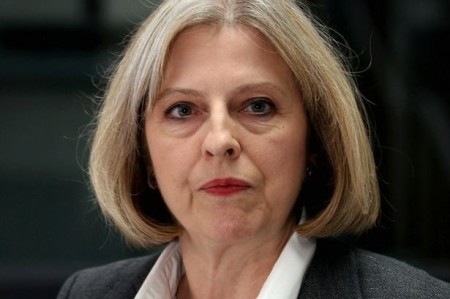The Home Office has been accused of having ‘outdated’ views on sexuality, after it rejected an asylum claim made by a Nigerian lesbian, reports The Independent.

Aderonke Apata, 47, came to Britain in 2004 and is an award-winning LGBT rights activist. Now, she is challenging the Government’s decision not to grant her asylum in Britain and fears that deportation to Africa would compromise her safety. Yesterday (Tuesday), she appeared in London’s High Court to appeal her case.
She was accompanied by her fiancée Happiness Agboro and a group of gay-rights activists. Apata has even submitted footage and photographic evidence of her sex life to prove that she is homosexual. However, the Home Office has refused to recognise her sexuality – arguing she can’t be classified as a lesbian because she has children from a previous heterosexual relationship.
Barrister Andrew Bird, on behalf of the Home Secretary, claimed that Apata wasn’t “part of the social group known as lesbians,” although he conceded that she had “indulged in same-sex activity.”
“You can’t be a heterosexual one day and a lesbian the next day. Just as you can’t change your race,” he added during the hearing. Apata’s barrister, Abid Mahmood, called these views: “highly offensive”.
“Some members of the public may have those views but it doesn’t mean a government department should be putting these views forward in evidence,” he told the court.
He added that the Home Secretary, Theresa May, had called Apata’s case a “publicity stunt” in court documents.
Until recently, gay asylum seekers were liable to be asked ‘intrusive’ and personal questions about their sex lives, in order to establish the validity of claims about their sexuality.
Nigeria passed a law criminalising homosexuality in January 2014 and it’s punishable by up to 14 years in prison (for attempting to enter a gay marriage. Supporting a LGBT organisation can get you 10 years jail time).
Since the anti-gay law was implemented, there has been a noticeable backlash against the homosexual community, with vigilante attacks against gay people increasing dramatically.
In March last year, four Nigerian men were publically whipped after being convicted of gay sex.
Apata’s fragile mental state also forms part of her case. She has previously been diagnosed with post-traumatic stress. She attempted suicide while being kept in prison and facing deportation.
Mahmood added: “There is evidence of the genuineness of her case, that she will be picked out as a lesbian if she is returned.”
After the hearing, Apata said: “The Home Office has treated me badly from day one. Staying in Britain means staying safe, staying with my partner and continuing my campaigning.” A petition to overturn the decision and grant Apata refugee status has, so far, had almost 29,000 signatures.
A ruling is expected by the end of March.









